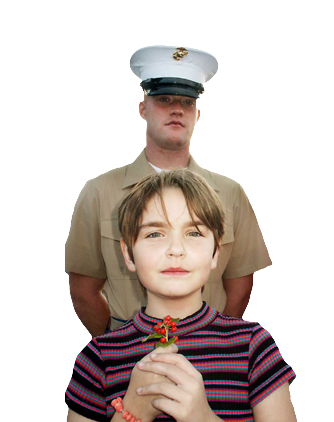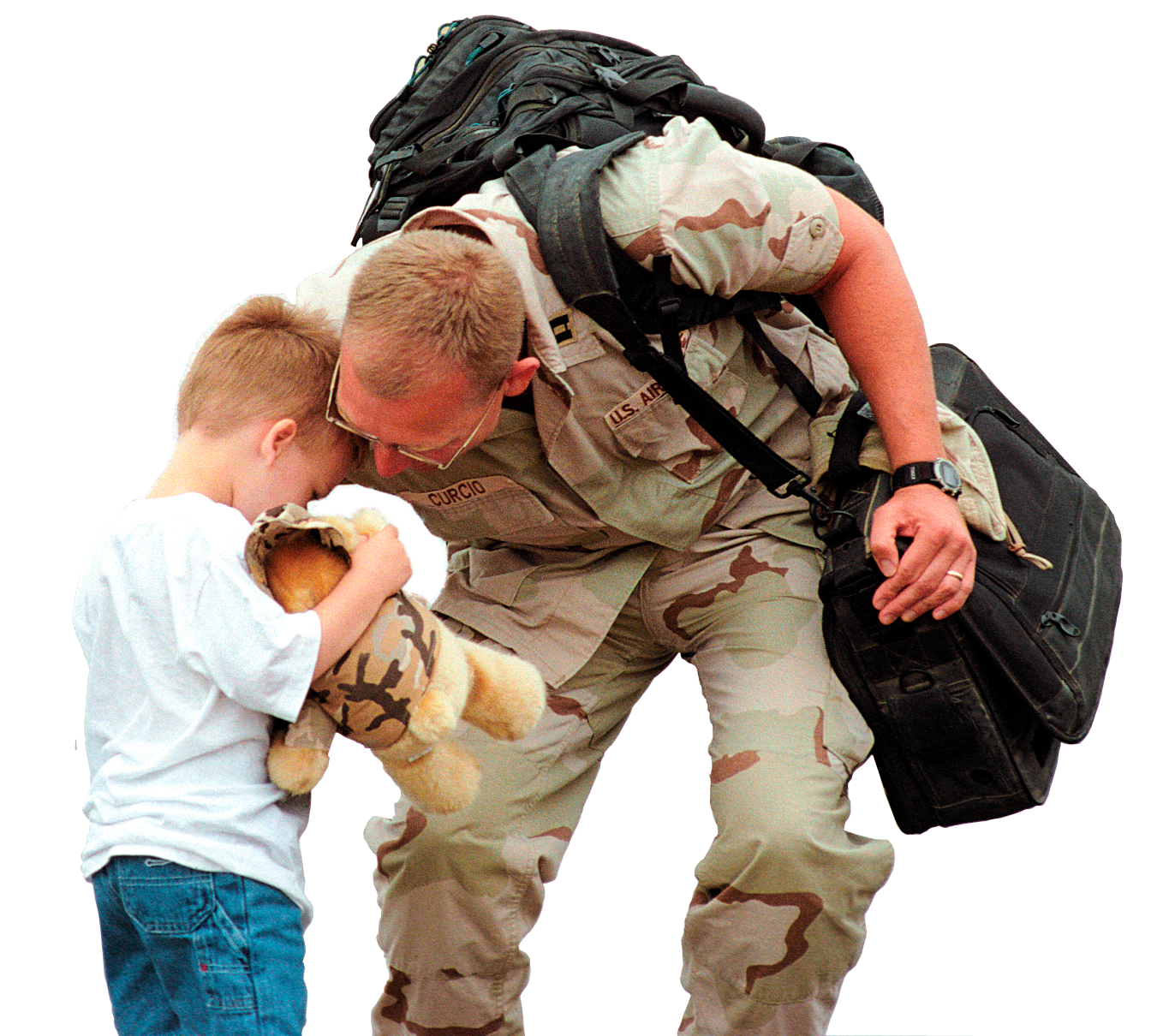[caption id="attachment_4323" align="alignleft" width="300"] Newly minted Marine Corps Pfc. Matt McGuiness holds the battalion guidon during his recruit training graduation ceremony at Marine Corps Recruit Training Depot at Parris Island, S.C., Jan. 15, 2010. McGuiness endured painful surgeries and a long recovery after being medically discharged from Marine Corps recruit training a year earlier due to lung problems. Courtesy photo[/caption] NEW ORLEANS – Marine Corps Lance Cpl. Matt McGuiness battled a collapsed lung and other challenges in realizing his dream of becoming a Marine.
Newly minted Marine Corps Pfc. Matt McGuiness holds the battalion guidon during his recruit training graduation ceremony at Marine Corps Recruit Training Depot at Parris Island, S.C., Jan. 15, 2010. McGuiness endured painful surgeries and a long recovery after being medically discharged from Marine Corps recruit training a year earlier due to lung problems. Courtesy photo[/caption] NEW ORLEANS – Marine Corps Lance Cpl. Matt McGuiness battled a collapsed lung and other challenges in realizing his dream of becoming a Marine.
 Newly minted Marine Corps Pfc. Matt McGuiness holds the battalion guidon during his recruit training graduation ceremony at Marine Corps Recruit Training Depot at Parris Island, S.C., Jan. 15, 2010. McGuiness endured painful surgeries and a long recovery after being medically discharged from Marine Corps recruit training a year earlier due to lung problems. Courtesy photo[/caption] NEW ORLEANS – Marine Corps Lance Cpl. Matt McGuiness battled a collapsed lung and other challenges in realizing his dream of becoming a Marine.
Newly minted Marine Corps Pfc. Matt McGuiness holds the battalion guidon during his recruit training graduation ceremony at Marine Corps Recruit Training Depot at Parris Island, S.C., Jan. 15, 2010. McGuiness endured painful surgeries and a long recovery after being medically discharged from Marine Corps recruit training a year earlier due to lung problems. Courtesy photo[/caption] NEW ORLEANS – Marine Corps Lance Cpl. Matt McGuiness battled a collapsed lung and other challenges in realizing his dream of becoming a Marine.The Chesapeake, Va., native comes from a military background. Both of his parents are Navy veterans and his family tree, heavy with sailors and Marines, reads like a ship’s roster, he said.“He grew up around military,â€Â said McGuiness’ father, Tom, the chief of police at Naval Medical Center Portsmouth, Va. “He grew up always hearing, ‘If you want to be the best, join the Corps.’â€Â McGuiness said his uncle, a Marine veteran who died when he was a boy, provided most of the inspiration that pushed him toward the Marines. “I admired his professionalism and his day-to-day efficiency,â€Â McGuiness said of his uncle. “When he died of cancer, it just made me want it even more.â€Â It was no surprise to friends and family when, during his freshman year of high school, McGuiness began showing interest in the Marines. “He went through four years of junior ROTC in high school,â€Â McGuiness’ father recalled. “He went to every training thing he could go to, went to the recruiter’s office every day he could get away with it.â€Â When the day finally came for McGuiness to report to Marine Corps Recruit Training Depot at Parris Island, S.C., in the summer of 2008, he worried about the same types of things most recruits fret over. “Am I going to make it? How hard will it be? How will I handle the stress?â€Â he recalled. As he ran and screamed with the other recruits still wearing their civilian khaki pants and collared shirts, he had no idea he had blisters on both his lungs that would soon rupture without warning. “There’s no way to medically understand it or to medically find it until it happens,â€Â McGuiness’ father said. “You had a six-foot kid who could run circles around anything.â€Â The fateful moment came well into McGuiness’ first phase of recruit training as he waited in line for chow. “I felt a pop in my chest and I hunched over in pain and just tried to stand up,â€Â McGuiness said. “I tried to make it look like I was all right so I wouldn’t go to medical.â€Â But McGuiness wasn’t all right. A blister on his left lung had popped, leaving a hole. As he inhaled, air escaped through the hole and built up pressure around his lung, flattening it inside his body. “Any movement you make is just ridiculous because your lung is no longer attached to your chest and it just bounces around,â€Â McGuiness said. “When you walk, when you stretch, when you lie down, you just feel it.â€Â McGuiness said he was determined to not give up, despite not knowing what was wrong. “I thought I pulled a muscle or cracked a rib or something,â€Â he said. “It felt more or less like someone stabbing you and twisting that knife constantly.â€Â His father said he understood his son’s stubborn refusal to quit. “Like any good Marine, he tried to hide it,â€Â he said. “I guess it’s kind of hard to hide losing a lung, though.â€Â It was the gas-mask training that finally ended McGuiness’ punishing charade. As he choked down tear gas in the chamber, his chest exploded with searing pain. “I was coughing really badly and I kind of freaked out and started hitting the wall,â€Â he said. His drill instructors, already suspicious something was wrong, got McGuiness out of the gas chamber and ordered him to see the doctor. After a series of X-rays, McGuiness realized a medical discharge was almost certain. After a couple of short stints at area hospitals where his lung was stabilized, he was placed in a special platoon where recruits awaited a medical board’s ruling on whether or not they were fit to serve. While he waited there, McGuiness watched his platoon march across the parade deck during what was supposed to be his graduation. They had become Marines. He would soon become a civilian. “The medical discharge was one of the worst things that ever happened to him because all he ever wanted to be was a Marine. He felt like he failed his family and his Corps,â€Â McGuiness’ father said. McGuiness discussed treatment options with his father during the months he spent awaiting discharge. As soon as he got out, the pair went to work. The two met Cmdr. Robert Strange, one of the Navy’s leading cardiothoracic surgeons, at Naval Medical Center Portsmouth. “The problem you have with spontaneous neumothorax [McGuiness’ condition] is a 30-percent chance of it happening again, and after a second episode you have a 60-percent chance of it happening again,â€Â Strange said. The Marine Corps required McGuiness to wait three to five years before trying to enlist again in case his lungs developed more problems. With Strange’s help, however, that wait could be reduced to just one year. “I told him I don’t want them just re-inflated, I want to be able to join,â€Â McGuiness said. “Dr. Strange just hooked me up.â€Â McGuiness would need two operations, one for each lung. First, surgeons would have to remove and staple the blisters on both lungs using videoscopic surgical tools. Then, in order to make sure the lungs remained strong, Strange had to “mechanically abradeâ€Â McGuiness’ chest walls so that they would swell and stick directly to the lungs. That way, Strange explained, any future ruptures in the lung tissue wouldn’t form a hole and deflate the lungs. The procedure can be very painful, Strange said. “The best medication to stop this pain is an anti-inflammatory drug, but if you give that, you stop the process you want,â€Â he said. “We weren’t able to give him the anti-inflammatory drugs to take the pain away.â€Â Even with the pain killers McGuiness was allowed, the weeks he spent recovering were some of the most painful of his life. “You gotta breathe, it’s a natural process -– if you don’t breathe you die,â€Â McGuiness said. “My problem was my lungs were just on fire.â€Â McGuiness’ father remembers watching over his son during those long weeks. “I’ve never seen my kid in more pain in my life,â€Â he said. “It broke my heart.â€Â After the first lung had healed, McGuiness went through the whole process again for the other lung. The pain killers’ effects on the body couldn’t be fully predicted, and ended up numbing the wrong side of his body. “I woke up in the intensive care unit, screamed and then passed back out,â€Â he said, adding he could remember the feeling of the four separate tubes that stayed in his chest during his weeks-long hospital stays. “I had to go back [to training]; all I thought about was going back.â€Â Looking back on the operations, Strange said he was impressed by his patient’s resilience. “He was willing to do all that just to go into the Marines and not have to wait,â€Â he said. McGuiness returned to the recruiter’s office, back to the training functions and back to the gym. For eight months he worked to regain the body he once had. It took “waiver, after waiver, after waiver,â€Â to get McGuiness back to Marine boot camp because of his complex medical history, his father said. His son, he noted, wouldn’t take ‘no’ for an answer. McGuiness returned to Parris Island and he graduated boot camp and became a Marine on Jan. 15, 2010, two years after he first arrived at the training depot. McGuiness went on to make lance corporal and became an amphibious assault vehicle crew member with the 4th Amphibian Assault Battalion, 4th Marine Division, based in Little Creek, Va. “I saw my sons being born, but the day I saw Matthew holding the battalion guidon during graduation, nothing prepared me for that,â€Â McGuiness’ father said. “I’ve never cried like that.â€Â Dec. 8, 2010: By Marine Corps Lance Cpl. Jad Sleiman- Marine Forces Reserve






